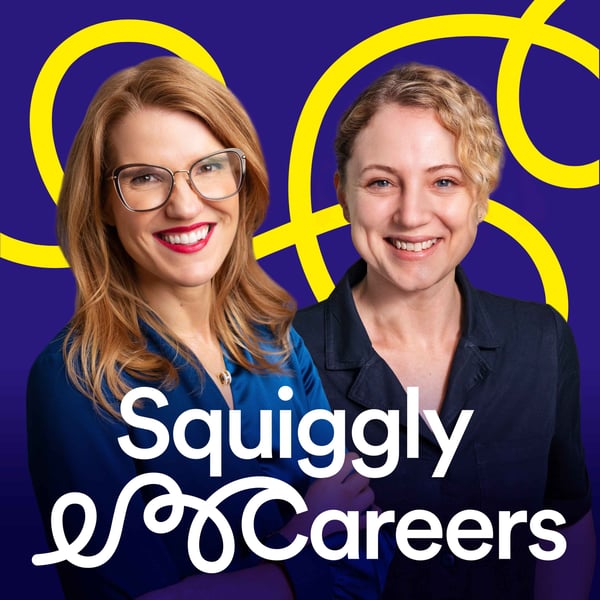#430 Skills Sprint: Storytelling
Squiggly Careers
The Squiggly Career
5 • 809 Ratings
🗓️ 30 August 2024
⏱️ 7 minutes
🧾️ Download transcript
Summary
We're at the end of the Sprint! In episode 20 out of 20 of the Squiggly Careers Skills Sprint, Helen and Sarah talk about storytelling and how stories light up our brains in a different way helping you create empathy and human connection.
New to our Sprint? Our Skills Sprint is designed to help you create a regular learning habit to support your squiggly career development.
Each episode in the series is less than 7 minutes long and has ideas for action and recommended resources on a specific topic.
1. Sign up for the sprint and receive a free guide to get started: https://bit.ly/skillssprint2024
2. Watch our Sprint on YouTube: https://bit.ly/scss-playlist
3. Read our books ‘The Squiggly Career’ and ‘You Coach You’: https://www.amazingif.com/books/
If you have any questions or feedback (which we love!) you can email us at [email protected]
Hosted on Acast. See acast.com/privacy for more information.
Transcript
Click on a timestamp to play from that location
| 0:00.0 | It is the final episode of the Squiggly Careers Skills Spread. |
| 0:05.7 | Thank you for spending 20 days learning with us. |
| 0:09.8 | We would love to know how you found this experience. |
| 0:12.1 | So make sure you give us some feedback, Helen and Sarah at squigglycareers.com. |
| 0:15.8 | But with one episode left, let's get into it. |
| 0:18.4 | So we are ending on a high, and the high is the skill of storytelling. |
| 0:23.4 | And storytelling matters because stories are memorable. When we share a story, our brains light up |
| 0:31.0 | in a different way. We have mirror neurons in our brain and so when someone tells a story, |
| 0:36.4 | they kind of connect and that's where we feel |
| 0:39.4 | empathy. We feel connection. If Helen's telling a story about something, I start to think about |
| 0:45.1 | have I had a similar experience? And so we don't all want to tell stories all the time. We do |
| 0:51.0 | need facts and data along the way. But I think often we can feel that |
| 0:55.8 | stories are a bit intimidating because you feel like, oh, if it needs to be a TED Talk style |
| 1:01.5 | story or it needs to be a life story. But I think most of the stories that we tell at work |
| 1:06.0 | are really small stories. They're just kind of those moments where it shows that we care, that we're human, |
| 1:13.4 | and you're just bringing things to life in a different way. And so my top tip here and the thing |
| 1:19.3 | that I am trying to do more of, because I think it's quite, it gets you to be like curious, |
| 1:23.2 | it gives you a thing to focus on, is to be a story spotter. So set an intention for your week at work to spot the stories that people are saying |
| 1:32.2 | in the meetings that you're in, the moments that you're having chats with. |
| 1:35.5 | Because I think what it helps you to do is see the variety of stories or examples that |
| 1:40.5 | people are sharing. |
| 1:41.7 | Like sometimes I'm looking for the lengths. |
... |
Please login to see the full transcript.
Disclaimer: The podcast and artwork embedded on this page are from The Squiggly Career, and are the property of its owner and not affiliated with or endorsed by Tapesearch.
Generated transcripts are the property of The Squiggly Career and are distributed freely under the Fair Use doctrine. Transcripts generated by Tapesearch are not guaranteed to be accurate.
Copyright © Tapesearch 2025.

